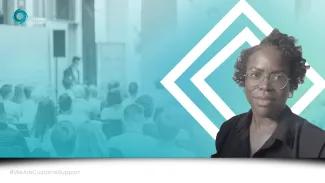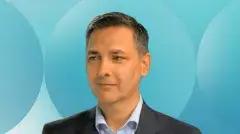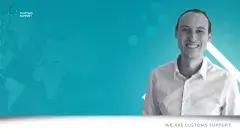Who are you?
I’m Arrianne Neijman, and have been working with Customs Support in the Netherlands for almost two years as a customs consultant.
Before joining the team here, I worked with customs themselves for nearly 13 years. Whilst there, I worked in various departments such as law and regulation support, objections and appeals, and even as a teacher of procedural customs law.
Before my role with customs, I worked in the tax office as a paralegal and collection specialist for a couple of years.
What does a customs consultant do at Customs Support?
Our customs consultants have a wealth of experience throughout the EU and UK, and can collectively assist with any customs function. I also have broad knowledge in customs, but my specialties are in procedures customs law, and objection and penalties because of the experience.
I work with a lot of companies on applying for customs permits, obtaining AEO certification, and improving customs compliance.
These are all procedural projects, whereby we need to assess your company’s SOPs, ensure your systems are up to date, and check your goods classification alongside any Binding Tariff Information (BTI) you have in place. This is what’s required to get those licences and certification.
Recently, I am also working with businesses on the introduction of the Carbon Border Adjustment Mechanism (CBAM) as the transition period began at the start of this month.
Preparing for CBAM has been tricky with defining which goods count and determining who the importer is in some cases – as well as the last minute changes to affected supply chains because of the recent sanctions on Russian iron and steel.
What’s your typical working day like?
I work from home most of the time, but also work from our headquarters in Rotterdam on occasion.
The first thing I do in the morning is check my emails to see if I have any updates on my projects or have been sent any news that is relevant to them. If there is an urgent update, then this is my priority. Otherwise, my day depends on the project I am doing.
If I am working with licences and permits, then I will be working with the client on their Administrative Organisation Internal Control (AOIC). This is a document where processes are defined, including the safety mechanisms that companies have in place to ensure that there is a procedure for when things go wrong. It’s like a master SOP for everything.
Other times, I am working on classification. It’s interesting because many people think of classification and assume it’s just looking up a HS code, but there’s so much more to it than that. We need to check the regulations, whether there are any footnotes that suggest your goods should be using another code under certain circumstances, the tax laws, preferential origin, and decide if Binding Tariff Information (BTI) should be sought before using a code.
You've been in Sustoms Support for two years but a total of nearly 15 years in the customs field. Tell us more about your career.
I started in customs quite young, working with the armed team that does the checking of unknown subjects and objects within the port and inside the border zone particularly. I was supervising colleagues and writing processes to ensure that checks were carried out correctly, and that any official reports that were drawn up complied with formal requirements.
Following checks and any charges, I also helped with training programs to ensure that our teams knew what was ok, what was not ok, when further authorisation was needed and how far checks can go on land or onboard a vessel.
After that, I worked in the BFC’s ( Boete Fraude Coordinatie-afdeling) penalty and fraud coordination department in a paralegal kind of role, and was the contact person for the public defender’s when they needed any further information when these cases went to the legal system.
I spent some time working in objections, appeals and complaints for customs as well. This was more privately focused, since the majority of the objections were from passengers due to unexpected duties that were due by returning to The Netherlands. In this role, I dealt also with a lot of complaints from companies about customs procedures.
What attracted you to working with Customs Support?
The first thing that I saw with Customs Support is the opportunity to expand my knowledge in the field. We manage a lot of different projects here across a range of industries, functions, and locations, so I knew there was a chance to learn a lot here.
I also liked that there is a safety net within that learning. Sometimes in customs, you are the senior person and you need to find the answer – that is it. Within Customs Support, my colleagues and I are able to fall back on each other’s experience and work together on our approach when there are complicated problems to solve.
What are you looking forward to learning about next?
The logistics side of things. My experience has mostly been with border agents and in the government and legal side of customs. It is good for me to be learning more on the supply chain side of things, where and how I can help companies to do more within their customs functions.
What do you enjoy most about your role?
I like that I can advise customers and get them results – that they can see how the changes to procedures benefit them and how we can create a joint way of working best with them, us, and customs.
What do you like to do outside of work, and how does that influence your work skills?
I like to work out a lot, so I go to the gym a lot, train BJJ (Brazilian Jiu Jitsu), and also run. I like the progressive nature of things, like you can always add more weight, do more sets, take shorter rests, or go faster. It’s that overload that makes a difference over time and I like striving for better.
How it helps me with work is that it shows me how little improvements add up, but also how there is not only one way to do something. You can get fit in a number of ways, but they all lead in the same direction. Similarly, you can look at the bigger picture of your supply chain and customs and find many areas for improvement. And just like different bodies needs different methods to succeed, so does every business.
What is the most important thing a client should look for in a customs partner?
Honesty and transparency. You should look for a customs partner who you can trust to either have the knowledge or a process to find the knowledge, and be honest and transparent about that throughout your interaction.
We don’t need to have everything in our heads, but we do need to be trusted to let customers know when we need to work on something and then follow through with that in the best way.
You work with a Europe-wide network. If you were to visit a location of Customs Support, which country would you like to go to and why?
The UK; it is just different from the European Union right now even though it used to be the same. I know my colleagues there are very serious about what they do, and I’d love to visit them and see how they do things.















